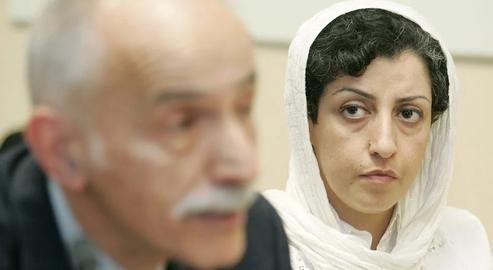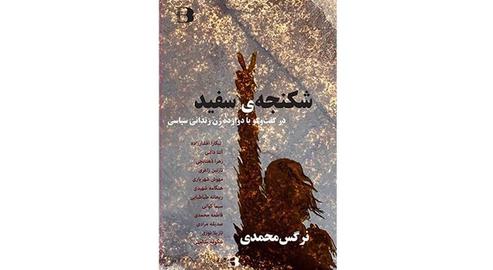Human rights activist Narges Mohammadi was held as a political prisoner in Iran for more than five years before being released last October. Her book, White Torture, contains interviews with 12 female political prisoners – and 13 in the second edition – about their experiences of solitary confinement. In this guest post for IranWire, she discusses the dynamics of this specific and under-reported method of torture by the Iranian regime.
***
Solitary confinement is one of the most complex forms of mental and psychological torture. It puts a prisoner in a position that psychologists refer to as "white torture", or "brainwashing".
A solitary cell is one in which a prisoner is placed in complete isolation and ignorance, deprived of their most basic human needs. He or she is deprived of access to baths and toilets, fresh air, light and brightness, the sound of voices, and the chance to interact with other human beings.
With this comes a disruption to their ordinary cognitive functions. The prisoner suffers from psychological disturbances that can lead to a loss of focus or, under the influence of false or manipulated news given to them by the interrogator, experiences thoughts and gives statements that are sole the result of being brainwashed.
This form of torture, in addition to harassing the prisoner, can have horrific effects on their body and soul of that remain with him or her for the rest of his or her life.
In Iran, solitary confinement is systematically used against political and civil activists. We have seen many confessions being given by individuals who were kept in solitary confinement that are impossible for society at large to believe.
Unfortunately, based on false confessions made by prisoners who were under psychological pressure, we have also sometimes witnessed the issuance and execution of death sentences as well as heavy prison sentences.
Human rights activists and organizations, including the Defenders of Human Rights Center, have been examining this method of torture for years.
The issue was first seriously highlighted between 2000 and 2002, when a large number of religious activists and Freedom Movement members were held in solitary confinement in the Revolutionary Guards’ Eshrat Abad detention center.
The families of these detainees held numerous rallies in front of the Palace of Justice, the Iranian parliament, and the offices of the United Nations. In 2004, the Human Rights Defenders Association held a press conference with local and foreign media, in which it declared that solitary confinement was a clear example of torture being systematically used against political and civil activists in Iran.
The National Peace Council issued several statements against the practice in 2008 and 2009, especially following the widespread detention of political activists after the June 2009 elections.
Later on I, Narges Mohammadi, who had been researching and working against solitary confinement for the Human Rights Defenders Association in 2000 and 2002, and later in Evin Prison, interviewed 12 women prisoners who had been held in solitary confinement for a long time. The book was published in 2020 by Baran Publishing in Sweden and was translated into several languages.
In March 2021 a group of political-civil activists who had experience of solitary confinement submitted a legal complaint and a petition against the practice in Iran, stating that according to current laws, solitary confinement is illegal, but is routinely applied to activists in Iran.
The group has called for the perpetrators of this form of torture to be brought to justice. Interviews, written campaigns, and activities have since been planned and conducted by the group. Together, we hope to end this illegal practice in Iran through the mechanisms of civil society and international human rights law.
Related coverage:
Group Litigants: Solitary Confinement is a Form of Torture
Tales of Isolation, Creativity and Survival
IranWire Exclusive: Narges Mohammadi: "I Continue to Fight"
The Judge Threatened to Sentence Us to Death if We Didn’t Confess
visit the accountability section
In this section of Iran Wire, you can contact the officials and launch your campaign for various problems





















comments